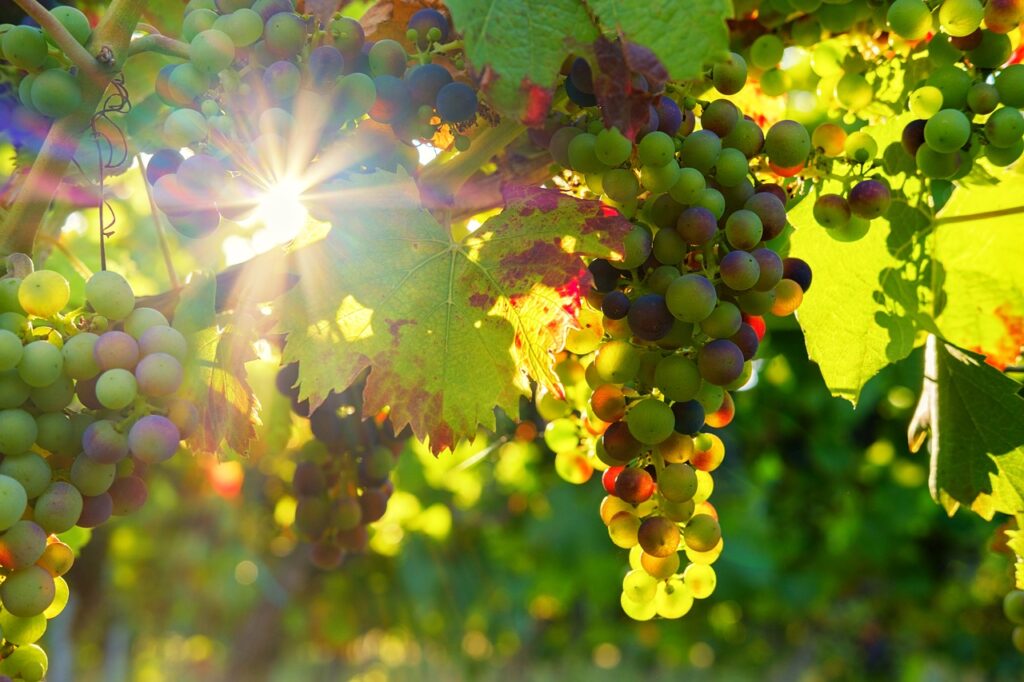There is a particular scene in the movie Shadow of the Hawk where a young couple is climbing a mountain with the help of their Indian guide in a desperate attempt to flee from evil people. At one point, the young woman slumps to the ground and says, “I can’t take another step.” The young man lifts her to her feet and says, “But darling, we must go on, and we have no other choice!” She shakes her head and says, “I can’t go on! I can’t go on!” Then the Indian guide advises the young man, “Hold her close to your heart and let your strength and your courage flow out of your body into hers. The young man does this, and in a few minutes, the woman smiles and says, “Now I can go on! Now I can do it!”
Yes, dear Friends, Jesus tells us today that He is the vine and we are the branches. By this parable, Jesus shows us how He shares his Divine strength and energy with us. The parable reminds us that when we are united with Jesus, we can do anything, but separated from Him, we are good for nothing. The first reading, (Acts 9:26-31) taken from the Acts of the Apostles, testifies the spiritual fruits yielded by the apostles because of their close bond with the risen Lord. The reading tells us how the Lord pruned the former Pharisee, Saul of Tarsus, a fanatic who had persecuted the Church, to produce a fruit-bearing branch called Paul, and made him a zealous Apostle to the Gentiles, entirely dedicated to the proclamation of the Gospel. In today’s second reading, (1 John 3: 18-24) John explains that only if we remain united with Christ by putting our faith in him and drawing our spiritual strength from him, we will be able to obey God’s commandments, especially the commandment of love.
“To be fruitful, one must be connected to the true Vine, Christ.”
Today’s Gospel (John 15:1-8) text is part of Jesus’ “farewell discourse” during his Last Supper with his disciples. Jesus explains to his apostles how they and their disciples can carry on when he is no longer physically present with them. He assures them, using the parable of the vine and the branches, that the life-giving Spirit Whom Jesus will send to them will be present and active within and among his disciples and their successors. Jesus uses his favorite image of the vine and the branches to help his disciples to understand the closeness of their relationship with him and the necessity of maintaining it. They are not just simply rabbi and disciples, but their lives are mutually dependent, as close as a vine and its branches. In fact, in using this image, he explains to them and us what our relationship with him should be like. To be fruitful, one must be connected to the true Vine, Christ. It means living the life of Christ, and the life of grace, which gives the believer the nourishment that enables them to yield the fruits of eternal life. This image of the vine also helps us to understand the unity of the Church. St. Paul explains that we are Christ’s Mystical Body in which all the members are intimately united with the head and united to one another (1 Cor 12:12-26; Rom 12:4-5; Eph 4: 15-16).
A well-pruned branch cannot bear grapes unless it abides in the vine. Jesus reminds us that we cannot bear fruit unless we abide in him just as he abides in us. This life of intimate union with Christ in the Church is maintained by the spiritual helps common to all the faithful, chiefly by active participation in the Liturgy. Those of us who do not abide in Jesus will wither and be thrown away, just as withered branches are thrown into the fire to be burned.

Being the branches of Jesus the vine, means being with Jesus and becoming Jesus for others today. That is why St. Paul said, “It is no longer I who live but Christ lives within me” (Gal 2:20). It is more than memorizing the Bible, saying the proper prayers with the right words and gestures, and learning the correct theology; but being detached from the compulsive desire for everything that is not of God and Godly. Being with Jesus and becoming Jesus is how we think, feel, act, and react in our daily lives. When we inspire the love of learning in our students; when we diminish dissension and instill cooperation in our parish’s societies; when we curb quarrels and fill our homes with loving concern; when we go out of our way to help the hungry, those in need, the oppressed, and those who suffer injustice; we are being with Jesus and becoming Jesus for our brothers and sisters around us. Being pruned as Christians for our faith and values is part of becoming Christ today. If we are not ready to be pruned, we become fruitless, leafy branches, draining life from the trunk without giving anything in return. Everyday is a call to be fruitful branches in order to make the world a better place to live and love.
Fr. Tomy J. Puliyan, MSFS
“ Holiness and Happiness through Wellness and Wholeness!”

